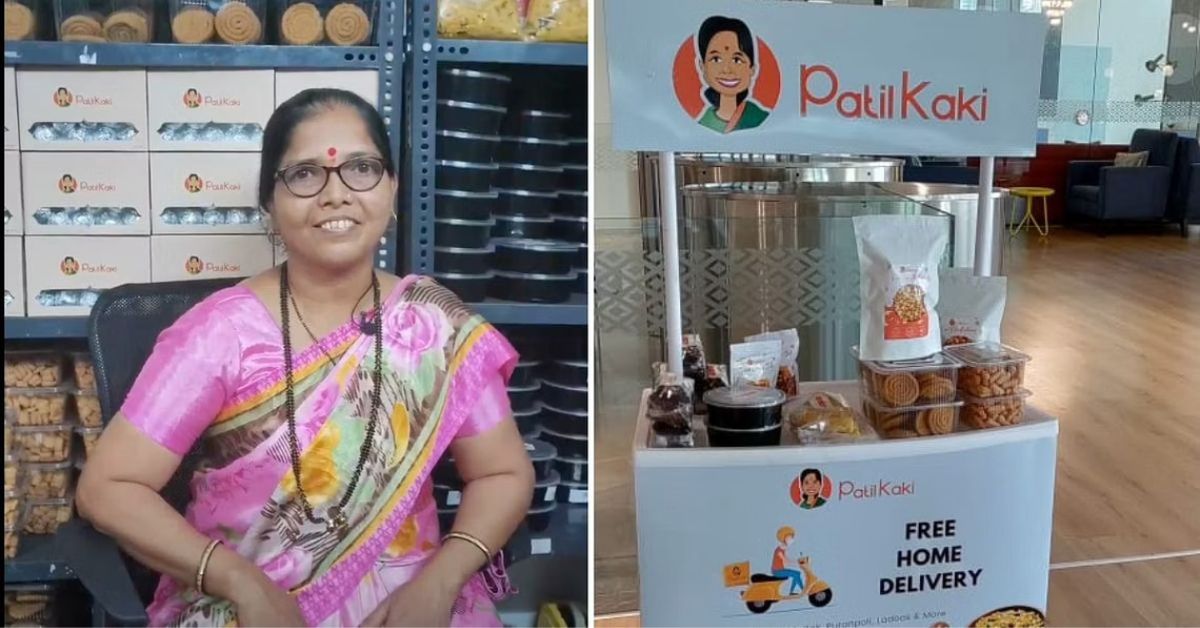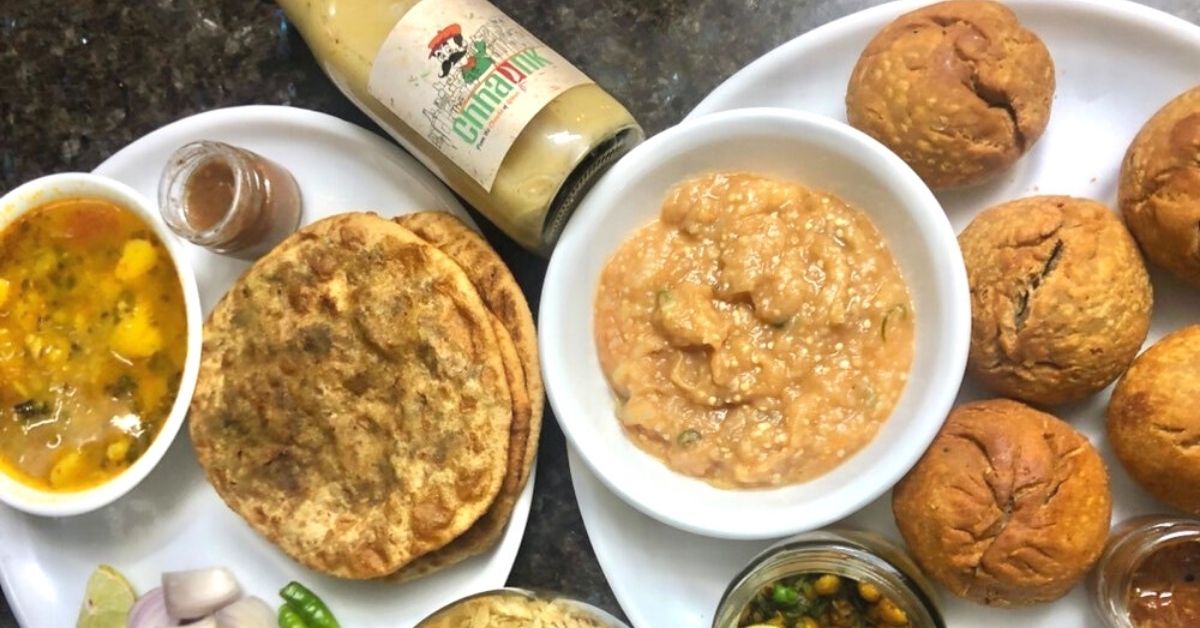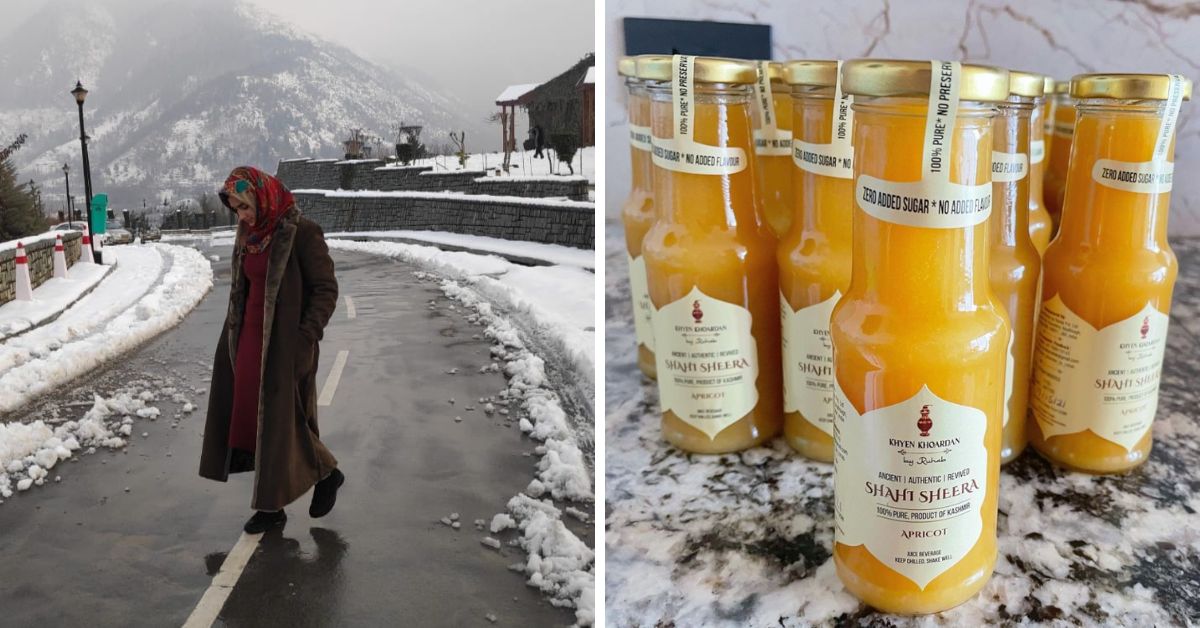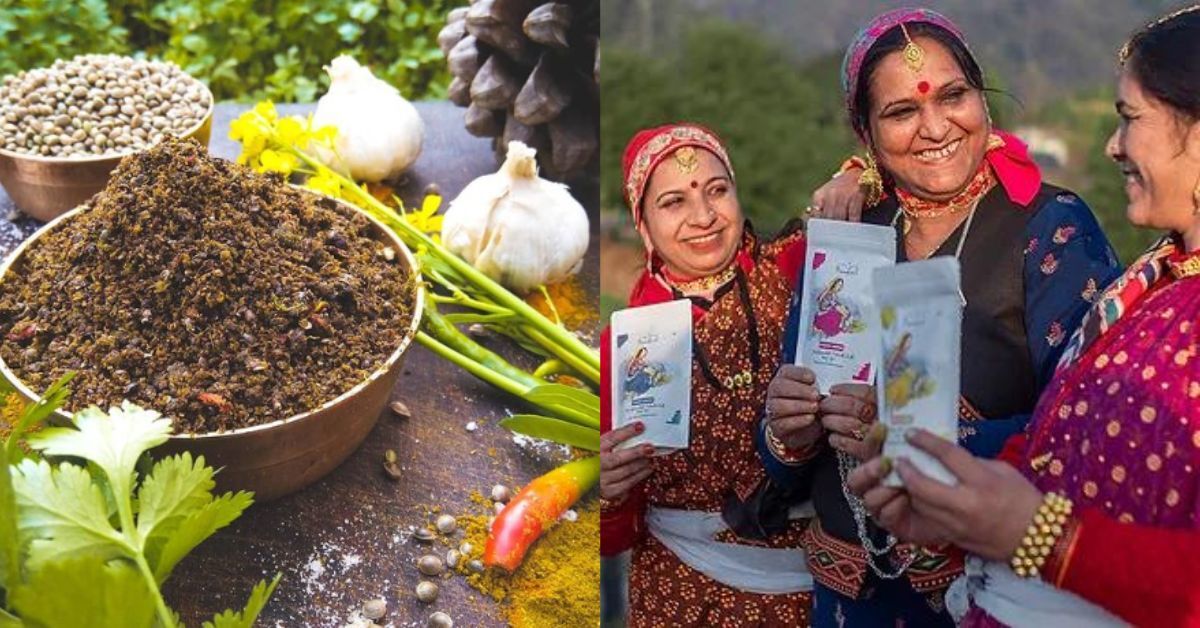Within India’s rich tapestry of stories, countless women have woven an awe-inspiring narrative. Against all odds, they’ve reached their highest potential, leaving behind extraordinary examples for others to follow.
Tales of entrepreneurship can be found both in the heart of Indian homes and within boardrooms. Whether managing households or steering companies, these women embody resilience and determination.
Every year, Women’s Entrepreneurship Day is celebrated to commemorate the grit, power, and excellence of women in male-dominated industries. Today, we share seven such exceptional stories of women who utilised their ancestral family recipes in profitable businesses.
Patil Kaki
In 2016, when Geeta Patil’s husband lost his job, she decided to turn her love for making authentic Maharashtrian snacks and sweets into a full-time business. With two kids to support and a household to run, she saw this as an opportunity to use her talents to provide for her family.

Starting small with ‘Patil Kaki’, she began selling snacks like modak, puranpoli, chakli, poha, and chivda with minimal investment. Over time, her business grew, and now, she serves more than 3,000 customers annually, making over Rs 1 crore in revenue.
Kimmu’s Kitchen
In 2020, Kamaljit Kaur from Punjab began ‘Kimmu’s Kitchen’. Her goal was to sell pure Bilona ghee without any additives or harmful chemicals.
“I have never once purchased store-bought ghee…Whether in my parents’ home in Ludhiana or when I got married and moved to Mumbai with my in-laws — ghee was always made fresh at home,” says Kamaljit. It was this desire to bring the taste she grew up with to Mumbai that led to her business idea.
She used the traditional Bilona method from her village in Ludhiana to make this happen, selling it not only across India but also to international customers. Today, she clocks a monthly revenue of Rs 20 lakh and ships out over 4,500 bottles of ghee each month.
The Chhaunk
Hiranyamayi Shivani and her daughter-in-law Manjari Singh, both from Delhi, bonded over their shared love for Bihari cuisine. They decided to cook these delicacies and start a business with a cloud kitchen.

Starting in 2021, their venture became a hit among food lovers in Delhi. The pair use food recipes passed down over generations and cook a variety of dishes — such as dal, bhat, tarkari, roti, litti choka, jhalmuri, and pickles.
Before starting the business, neither one of the duo had experience in the food industry, so navigating the new terrain was hard at first. Manjari says, “We struggled to get the registrations and logistics in place. Bihari food is not served widely across restaurants, so we were sceptical about the acceptance of our food. However, we were confident about the authentic, homemade taste and of people liking our food.”
With this, the duo caters to more than 450 orders a day and earns around Rs 4 lakh per month.
Kokanraj
Pune’s Lalita Khaire runs ‘Kokanraj’ to sell her homemade kokum sharbat. But before starting her entrepreneurial journey, she had to face many ups and downs — from having to sell her home to face the ire of relatives for wanting to run her own business.
Coming from a family that was service-oriented, it was an uphill task for her to convince her immediate relatives about her desire to become an entrepreneur. “Nobody understood it. They would rather I take up a secure job with a fixed salary at the end of the month. But I had other plans,” she says.
With this business, she clocks an annual revenue of Rs 2.5 crore.

Khyen Khoardan
In 2020, Kashmir’s Ruhab Lateef Mir started her business to revive an heirloom recipe of Shahi Sheera — a traditional Kashmiri beverage that is made by extracting the juice of different berries. She says the recipe was passed down as a family legacy from her great-grandmother.
For her, the biggest challenge in getting the business off the ground was the resistance she faced from her family. As she was working as an advocate, taking on the role of an entrepreneur was not something that immediately made sense to them.
“My support was my husband. Without him, I could not have done it. He pushed me to take it forward,” she says.
Since the launch of her business in 2020, she has received orders from over 100 weddings clocking an annual revenue of Rs 3 lakh.
Prem Eatacy
In 2018, a year after her mother-in-law’s passing, when Sonam was on a cleaning spree, she found her mother-in-law’s book collection. Although not a fan of cooking, she decided to try and recreate some of the recipes during the pandemic-induced lockdown.
This led to her starting a homemade food venture ‘Prem Eatecy’ in Chennai. Today, it sells 21 varieties of pickles, podi (powders), and chutneys — including the hing chutney, molagapodi, and mint coriander chutney.
She currently caters to more than 2,000 customers per month and clocks close to Rs 5 lakh in revenue every year.

Namakwali
In 2018, Sashi Bahuguna Raturi started ‘Namakwali’ to introduce the traditional recipes of the age-old pisyu loon salt to the world while taking her family legacy forward.
This flavoured salt is made by combining rock salt with fresh Himalayan herbs and spices in a traditional grinding slab called sil-batta. The salt prepared in various flavours, such as ginger, garlic, and hemp, is shipped to consumers in Delhi, Mumbai, and Chennai.
With the gaining popularity of these flavoured salts in urban regions of the country, Shashi was able to open up a new possibility of livelihood and financial independence for other rural women in the region. Currently, she employs at least 10 rural women to run her business, earning in lakhs.
Edited by Pranita Bhat.
No comments:
Post a Comment